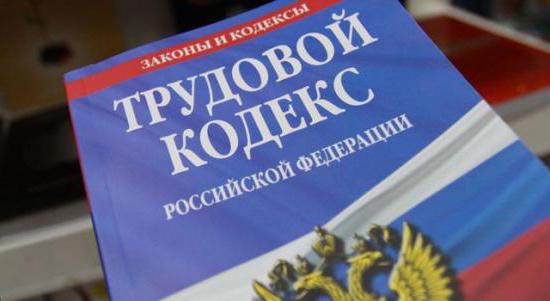Within the framework of a market economy, there is a high dynamism of the technological and organizational environment in which citizens fulfill their professional tasks. In this regard, the legislator focuses on the legal consequences that entails amendment of the terms of the employment contract as determined by the parties.

The specifics of the professional environment
What is technology? In a general sense, it should be understood as a system of machines and tools, methods of their use, and features of functioning. Accordingly, changes in technological conditions are expressed in the introduction of new equipment, tools, and adjustment of operating processes. As for the organization of professional activity, it is presented as a multidimensional and complex system. In practice, at least two of its sides can be defined. First of all, since human labor is an object of legal regulation and is characterized by a social character, it is carried out in interaction with other citizens. In addition, a monetary assessment of the activities of each employee is assumed. Accordingly, the organization of labor is the streamlining of relations during the joint fulfillment of professional tasks.
Employer-staff interaction
It begins with an agreement. This document establishes the working conditions at the enterprise, the rights, obligations, and responsibilities of each party. A citizen enters the enterprise and receives assignments in accordance with his qualifications, knowledge, experience, profession. Legislation allows for changes in the conditions of an employment contract specified by the parties at the initiative of the employer. At the same time, the immediate professional task of the employee should remain the same. This issue is discussed in detail in Art. 74 Labor Code of the Russian Federation. The new version of this rule provides for the obligations of the employer, restrictions, as well as guarantees for the employee. Let's consider it in detail.

General rules
If a production technology change, structural reorganization and other reasons have caused consequences in which the continuation of further interaction between the employer and the staff is not possible, some items may be adjusted on the initiative of the first in the contract. The exception is the section governing the functions of the employee. In this case, the employer draws up a written notice. Art. 74 of the Labor Code of the Russian Federation prescribes to indicate in the notice not only which items will be adjusted by the head. It should also contain the reasons why he made the appropriate decision. The notification is sent no later than 2 months. before upcoming events (Labor Code of the Russian Federation, article 74, part 2).
Employer Responsibilities
The employee has the right to disagree to continue professional activities in the new environment. In this case, the employer must draw up a written proposal to provide another occupation in the enterprise. This can be a vacant position, both corresponding to the qualifications of the employee, and a subordinate one. The employer may offer less paid work. In any case, the head of the enterprise must take into account the state of health of the employee. The employer must offer all vacancies that meet the requirements of the legislation available to him in this region. If it is prescribed by collective agreement or other local act to notify the employee of the availability of vacant posts in another locality, then the manager must also notify them. If in this case, the employee refuses to continue the relationship, the contract is subject to termination.A similar rule applies in the absence of vacant posts. Termination of the agreement is carried out under Art. 77 (part 1, paragraph 7).

Mass layoffs
If the reasons given in h. 1 Article 74 shopping mallmay entail a significant reduction in the number of staff, the employer has the right to take a number of measures in order to maintain staff. Moreover, they must be agreed with the elected body of the union according to the rules of Art. 372. Thus, the employer can reduce the duration of the shift, guided by Art. 74 Labor Code of the Russian Federation. Part time may be administered for no more than six months. In case of disagreement of the employee with this, the contract is terminated according to the rules of Art. 81. The employer may be introduced and part-time work. This measure is also allowed for a period not exceeding six months. If the employee disagrees with this, the contract is also subject to termination under Art. 81. In doing so, the employee is entitled to appropriate compensation and guarantees. It is necessary to note one more important point.

Changing the conditions that were determined by the employment contract should not worsen the situation of staff compared to the original.
Explanations
A contract clause establishing a specific working time is considered to be one of the essential ones. It follows from this that the reduction of this duration can be carried out exclusively with the consent of the staff. Employees can express their will after reviewing the relevant local act. It should be said that part-time work or change - inconsistent phenomena. Accordingly, there is no need to draw up an additional agreement on this to the contract.
Mass Criteria
Reducing the length of stay of personnel in the enterprise, as indicated Art. 74 Labor Code of the Russian Federation, due to the desire of the employer to maintain the number of employees. The criteria for mass dismissal are provided for in the Decree of the Council of Ministers of 1993. They are indicators of the number of employees being released upon liquidation of the enterprise or reduction in the number of staff. These criteria include:
- Cessation of activities of organizations in which 15 or more people work.
- Decrease in the number of staff: from 50 people. per month, 200 in 60 days, 500 or more in 3 months.
- Dismissal of 1% of employees from the total number of employees due to liquidation of the company or reductions in 30 days in areas where the share of employees is not more than 5 thousand people.
Today, mass criteria are set in territorial and sectoral agreements. In this regard, the indicators indicated above can be applied if the relevant agreements are not available in the said normative acts.

Nuances
As analysis shows Art. 74 Labor Code of the Russian Federation, the rules given in parts 5 and 6 do not have a universal character. This is due to the fact that their use is a right, but not an obligation of the employer. It should also be noted that these provisions Art. 74 TK RФ can be applied only in cases of mass release of employees. In addition, measures have a limited effect. This means that the circumstances due to which employees reduced working day, have a transitory character. It is assumed that after their elimination, staff will implement professional tasks in the usual way. It should be remembered that employees who reduced working daymay not agree with this. In such situations, the contract is subject to termination.
Legal requirements
Art. 74 Labor Code of the Russian Federation gives some opportunities to the employer. The legislator, providing this norm, is based on the unconditional recognition of the fact that the adjustment of contract clauses is always the initiative of the head of the enterprise. In this regard, the commented norm establishes that the changes introduced should not worsen the situation of the staff.Moreover, all local acts directly relating to employees should be adopted only in agreement with the representative structure of the union. Another important requirement is to notify staff of upcoming changes no later than 2 months. before they start.
External factors
Often, they are the reason for introducing changes to the terms of the contract. Under the influence of external factors, the employer tends to a greater degree to reorganize within the enterprise to adapt it to economic realities. Changes in working conditions in such cases are aimed at ensuring the existence of an economic entity, maintaining market positions.

Problems of proof
The circumstances for changing the terms of the contract are specific circumstances. If a dispute arises, the tenant is charged with proving their existence. Otherwise, all management actions related to changes in working conditions will be considered unlawful. Thus, it must be taken into account that, according to Article 56 of the Civil Procedure Code, the employer must provide evidence that the need to take appropriate measures was the result of adjustments made on the basis of, for example, certification, structural reorganization, etc., while the staff situation did not worsen. In case of their absence, termination of the contract will be illegal.
Notification Features
Notification of employees is the responsibility of the employer. The legislator has not specified specific procedures for notifying staff. In practice, it is recommended to draw up an order (order) of the director or other person authorized by him on the transfer of employees to new working conditions. Each employee is acquainted with the content of the act within the time limits established by law. In particular, the order is presented no later than two months before the start of the implementation of the planned activities. Somewhat different rules are set for individual tenants. Entrepreneurs must notify their employees no later than two weeks before the event.
Employee Failure
The legislation does not contain an exact indication of the time frame by which the employer is obliged to offer an employee a vacant position. Not provided and the form in which he must do this. One of the options for solving this problem is to present a list of all the vacancies available at the enterprise, together with an order on changes in working conditions. The employee is also acquainted with this list on a receipt. At the same time, the employee has the right to express his will - refuse the offer or accept the transfer. In the first case, the employer must issue an appropriate order. In addition, an additional agreement to the main contract is drawn up. This document indicates all amendments that are made to the contract. 
Conclusion
The previous Labor Code used the concept of “changing material working conditions”. In modern legislation, a different wording is used. The considered norm provides an opportunity to change the terms of the contract. An important conclusion follows from this. Any, even serious changes in working conditions will not matter and will not entail legal consequences if they are not associated with adjustments to the content of the contract. For example, the installation of equipment, new equipment, and computers do not always imply the imputation of an employee functions that are not provided for by the contract, do not correspond to his position, profession, qualifications, etc. The content of the contract in such situations is not affected. Accordingly, if you follow the law, changes can be made without fulfilling the requirements for transferring to a vacant position, including those enshrined in the commented norm, despite the fact that the actual working conditions have changed significantly. The employee, in turn, has the right to disagree with the innovations. The law provides him with the opportunity to initiate termination of the contract.In this case, the employee will have to provide evidence that the innovations significantly infringe on his interests or worsen the situation in comparison with the previous one. In such difficult situations, a citizen may need the help of a qualified lawyer.